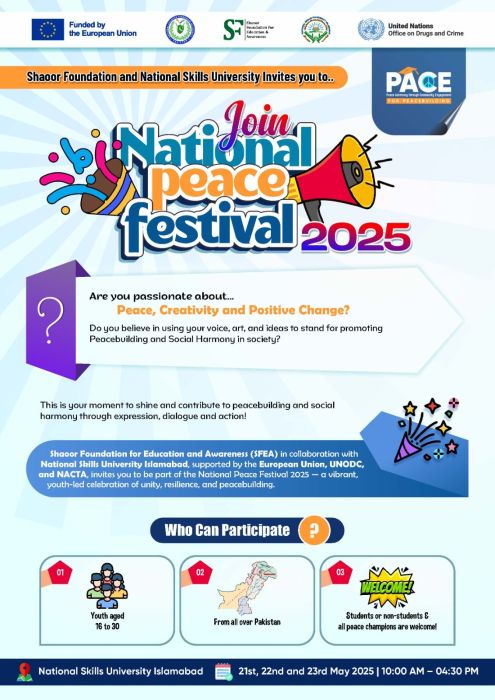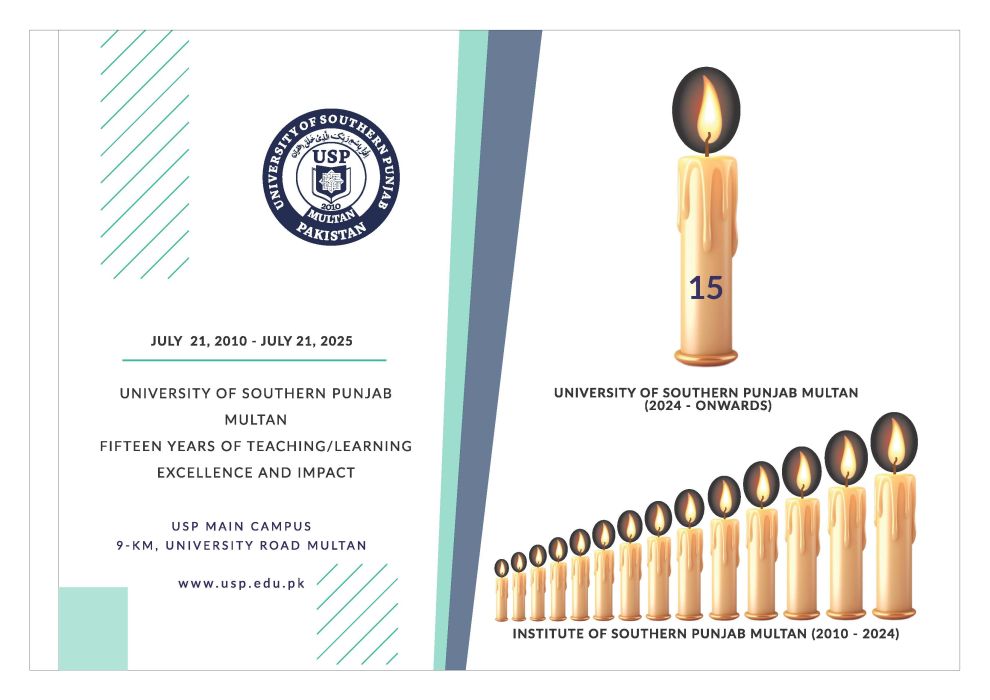72/25 Pakistan Society of Microbiology 15th International Conference
Posted 9 months ago
The inauguration of the 15th International Conference of the Pakistan Society for Microbiology held at Quaid-i-Azam University (QAU) in Islamabad was not merely a ceremonial gathering of scientists, it was a declaration. It marked a moment of evolving microbiology research in South Asia, emphasizing its indispensable role in tackling pandemics, ensuring food security, and stewarding environmental sustainability.
The event, opened by Prof. Dr. Shahana Urooj Kazmi, President of the Pakistan Society for Microbiology (PSM), and hosted at one of the country's most prestigious academic institutions, reflected the discipline's growing national stature. With a long-standing legacy of pioneering research and a vibrant academic ecosystem, Quaid-i-Azam University Islamabad, under the guidance of its leadership, Engr. Prof. Dr. Niaz Ahmad Akhtar is asserting its role as a continental hub for scientific thought and innovation. Dr. Akhtar welcomed all honorable delegates from the country and abroad. He thanked the entire organizing team of his university and PSM members nationwide.
Moderated by Prof. Dr. Muhammad Imran, the opening ceremony convened a distinguished cadre of scientists from Pakistan and abroad. Among the most notable were Prof. Dr. Farhan Essa Abdullah, CEO of Dr. Essa Laboratory and Diagnostic Center and Patron-in-Chief of PSM; Prof. Dr. Irfan Zia Qureshi, Dean of Biological Sciences at QAU; Prof. Dr. Tasawar Hayat, Dean of Natural Sciences; Prof. Dr. Muhammad Ishtiaq Ali, Chairman, Department of Microbiology at the QAU and Prof. Dr. Rabaab Zahra, Chairperson of the PSM Islamabad Chapter. Their collective presence spoke volumes about the unified momentum driving microbiological inquiry in the country.
The inaugural keynote by Dr. Paul D. Brown from the University of the West Indies echoed the urgency and opportunity in the discipline. In a riveting address, he stressed the global importance of microbiology as a cornerstone of public health and as a pivotal tool in safeguarding ecosystems and ensuring sustainable food systems. This message resonated with a generation of researchers acutely aware of the modern world's interdependencies.
This year's conference agenda boldly reflects those interconnections. Sessions on CRISPR, artificial intelligence in microbial research, and the interdisciplinary applications of microbiology highlighted the expanding frontiers of science no longer confined to laboratories. With workshops and panels focused on bridging the gap between academia and industry, Pakistan's scientific community is laying the groundwork for translational research that meets real-world needs.
Yet, while the conference looks to the future, it also invited a scientist and academic leaders who served science in its moment of greatest global trial with colleagues across the country and globally.
One such figure is Prof. Dr. Muhammad Mukhtar, Founding Vice Chancellor of the National Skills University Islamabad, who manifested his scientific leadership during the COVID-19 pandemic. In an era of viral misinformation and public uncertainty, Dr. Mukhtar emerged not from the silence of peer-reviewed journals but from television screens, town halls, and digital platforms, delivering accessible, science-based education to millions of Pakistanis.
Through calm, informed, and compassionate communication, he translated the often tough language of virology into everyday common sense. At a time when vaccine hesitancy threatened national health efforts, he championed immunization not just as a medical imperative but as a civic duty. As the head of a skills-focused university, he mobilized his institution to develop training programs in biosafety, infection prevention, and diagnostics, transforming policy into practice.
Today, as Dr. Mukhtar looks beyond the pandemic, his vision for microbiology is one rooted in connectivity. "Microbiology must transcend disciplinary boundaries," he noted recently. "It must serve everyone, including patients suffering from infectious diseases. It is the one science that explains life from the soil beneath us to the cells within us."





